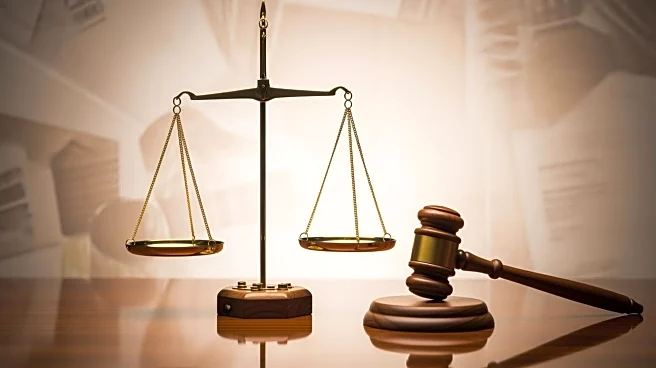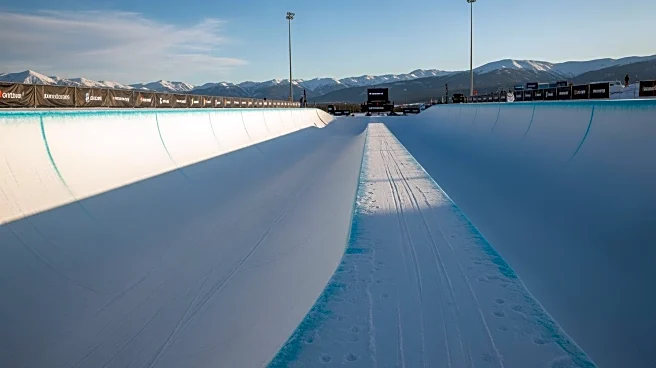What's Happening?
A federal judge is scrutinizing the tactics used by immigration officials during 'Operation Midway Blitz,' a Trump administration initiative. In a recent court session, U.S. District Judge Sarah Ellis questioned officials from Customs and Border Patrol
and U.S. Immigration and Customs Enforcement about their use of force during protests. The officials defended their actions, citing dangerous situations where agents were attacked with eggs and rocks, necessitating the use of tear gas. Judge Ellis had previously issued a temporary restraining order limiting the use of tear gas and mandating body-worn cameras for agents. Despite these orders, incidents in Chicago's Albany Park and East Side raised concerns about compliance. The officials assured the judge that agents were briefed on the restraining order and that new personnel would be informed of these restrictions.
Why It's Important?
The scrutiny of 'Operation Midway Blitz' highlights ongoing tensions between immigration enforcement and civil liberties. The judge's intervention underscores the legal and ethical challenges faced by law enforcement in balancing public safety and individual rights. The use of force and surveillance tactics in urban areas can have significant implications for community relations and public trust in government agencies. The outcome of this legal examination could influence future policies on immigration enforcement and the use of force, potentially affecting how similar operations are conducted nationwide.
What's Next?
Judge Ellis's continued oversight may lead to further modifications of the restraining order, particularly concerning body-worn cameras and the use of force. The court's decisions could prompt changes in training and operational protocols for immigration agents. Additionally, the legal proceedings may encourage media and civil rights groups to increase their scrutiny of government actions, potentially leading to more lawsuits or public campaigns advocating for policy reforms.
Beyond the Headlines
The case raises broader questions about the militarization of immigration enforcement and its impact on civil liberties. The use of aggressive tactics in urban settings can exacerbate tensions between law enforcement and communities, particularly those with large immigrant populations. This situation also highlights the role of the judiciary in checking executive actions and ensuring compliance with legal standards, which is crucial for maintaining democratic accountability.

















